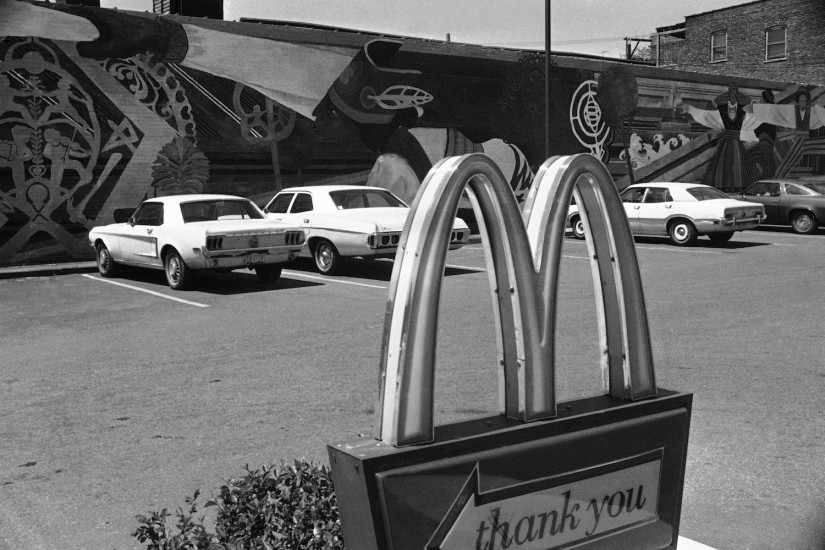What do you think makes fast food so quintessentially American? What does its history reveal about American history?
Fast food [took off] in large part because of the highway system that we built in the 1950s and the1960s. America started driving more than ever before and we rearranged our cities based on car travel, for better or worse. And it was a natural business response to the American on-the-go kind of lifestyle.
The founders of all these fast food chains are [part of] what we would call the quintessential American Dream. They were, by and large, from humble beginning. They often grew up poor, didn’t achieve success until late in their life, and had all these setbacks. Colonel Sanders is a key example of somebody who struggled his entire life and then struck it rich with a chicken recipe he perfected while working at a gas station in southeastern Kentucky. There are all of these really impressive stories that I think, in another era, we would hold up as the ideal of American success.
And then there’s the food. The food is terrible, and it’s delicious, and it’s completely ridiculous and we love it. I mean, not everybody loves it, but it has this element of hucksterism to it, these insane ideas that get made. It’s a very American idea to just have the biggest, craziest burger or the wildest thing.
You can go into a McDonald’s, you can go into a Taco Bell, and you will see literally every demographic grouping there. Old, young, all races, all ages, all economic backgrounds kind of sharing a meal. There’re not a lot of places that offer that.
White Castle was the country’s first fast food chain when it opened in 1921 in Wichita, Kansas. What made it so appealing to Americans?
It fit the tech fascinations of the ’20s. There was a real assembly-line fervor that was raging across America. White Castle adopted this model—they had food that was prepared quickly in a very highly mechanized, highly systematized way. Every inch of the grill was dedicated for either the bread or the beef in small, square patties.
[White Castle] had these efficiencies built into it that really spoke to the fascinations of the era. And now it would sound weird, the idea that your experience there should be the same every single time and that every customer gets the exact same food over and over again. Something that’s very familiar is kind of seen as a negative now, but back then it absolutely was a cherished part of the experience.
